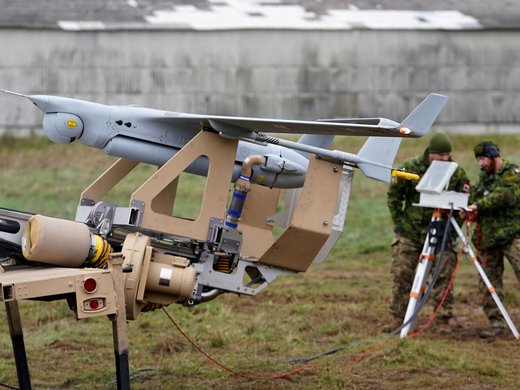With only a number of weeks left in his term, and under a great deal of pressure, President Barack Obama spoke with candour and clarity to the unfading issue of Russian hacking in the US presidential election. Mr. Obama’s message to Russia was clear: Don’t do this to us, because we can retaliate.
President Obama told NPR that “there is no doubt that when any foreign government tries to impact the integrity of our elections … we need to take action. … And we will – at a time and place of our own choosing.”
The question now remains: What might be these consequences for Russia’s alleged hacking and tampering?
To Russian ears, this threat, like others before it, likely rings hollow. The United States is constrained, in terms of the potential timing of a retaliatory move and the nature of the move itself.
The timing of a potential US response is potentially capped at Friday, Jan. 20, 2017. President Obama is committed to retaliatory action against Russia, but president-elect Donald Trump sees the world differently.
When the CIA leaked that Russia was manipulating the election, Mr. Trump moved swiftly to discredit his own intelligence agency, stating “I don't believe they interfered... it could be Russia. And it could be China. And it could be some guy in his home in New Jersey.”
You never know what Mr. Trump might do, but the odds that he will authorize direct or even indirect retaliatory activity against Russia seems unlikely. This means Mr. Obama could have as little as one month to act if he wants to show Russia that hacking and election tampering are not okay.
The range of potential responses is also limited. Mr. Obama could order a retaliation against Russia across the full range of US capabilities. He could order the use of cyberweapons, impose further sanctions or cut off diplomatic ties. He could also initiate a process to tamper with Russia’s internal politics, and bolster support for Mr. Putin’s enemies within and around Russia.
We were offered a clue as to what the US response might look like in Mr. Obama’s end-of-year address and his making clear that, like Russia, the United States will not look to “beat its chest” in responding to election meddling and online belligerence.
The rule book on retaliations for cyberattacks is still being written, so what comes next is unknown. We are left with the hanging threat of an impending US attack, that may or may not take place in the weeks to come.
Attribution in cyberspace is an imperfect science. No one can know because there is no way to know with absolute certainty what the motives or identity of these actors are. CrowdStrike, the private information security firm tasked with examining the Democratic National Committee’s network, brought forward evidence that linked two malicious actors to the hack – Fancy Bear and Cozy Bear.
Unsurprisingly, both of these actors were “linked to the Russian government’s powerful and highly capable intelligence services.” All in all, however, this is far from conclusive. As uncertainty lingers, the range of potential actions that the United States could take become more restricted. If the United States was dead certain that Russia did it and the public was fully on board, then the US hand would be freer, but this is far from the case.
The other bind is the issue of escalation and precedent. We don’t really know yet what a cyberwar looks like. The outcome of an uncontained cyberwar is unknown, but given the dependence of the US economy, society and most of the global economy on digital technologies, an escalatory battle could be very harmful, very quickly.
As the United States is more dependent on digital technologies, it has much more to lose while Russia has everything to gain from such a scenario. Only about 70 per cent of Russians are online, while in the United States the figure is closer to 90 per cent. Beyond a simple count of users, the financial, technology and manufacturing sectors are almost completely reliant upon digital devices, while Russia’s economy and society remains somewhat insulated. With the fear of disproportionate damage, the United States is likely to hold back what it does.
Eric Jardine is Senior Fellow at the Centre for International Governance Innovation (CIGI) and is currently an assistant professor of political science at Virginia Polytechnic Institute and State University, in Blacksburg, Virginia.
This article first appeared in the Globe and Mail


